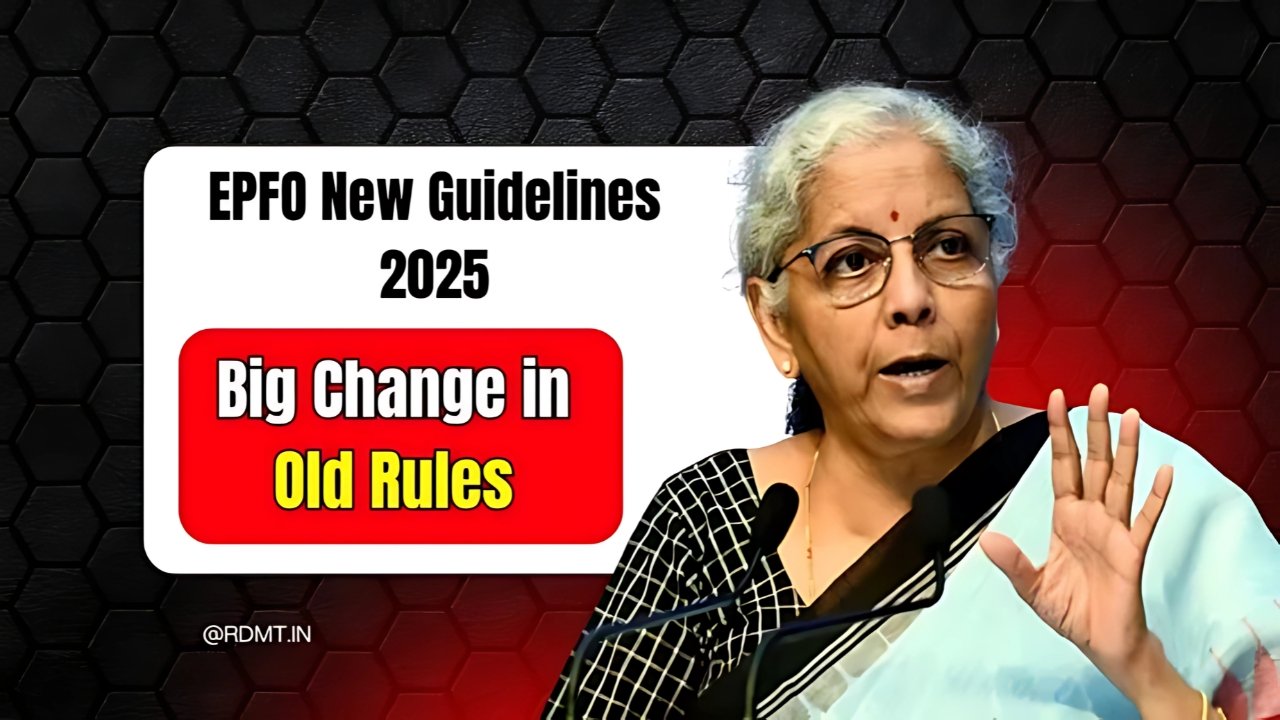CIBIL Score New Rule 2025: The Reserve Bank of India (RBI) has introduced groundbreaking reforms to the CIBIL score system, effective January 1, 2025. These transformative changes promise to revolutionize how credit scores are calculated, updated, and accessed across India. If you’re planning to apply for loans, credit cards, or simply want to improve your financial health, understanding these new rules is absolutely crucial for your financial success.
The new regulations bring unprecedented transparency, faster updates, and enhanced consumer protection to India’s credit ecosystem. From bi-weekly score updates to mandatory disclosure of rejection reasons, these changes empower borrowers like never before. Let’s explore how these revolutionary rules will impact your financial future and what you need to do to maximize their benefits.
Understanding the CIBIL Score Landscape in 2025
Your CIBIL score remains a critical three-digit number ranging from 300 to 900 that determines your creditworthiness. However, the way this score is calculated, updated, and accessed has undergone a complete transformation under the new RBI guidelines. These changes address longstanding issues in India’s credit system, including delayed updates, lack of transparency, and limited consumer access to credit information.
The timing of these reforms is particularly significant as India’s credit market continues to expand rapidly. With millions of first-time borrowers entering the system and digital lending gaining momentum, these rules ensure that the credit scoring system keeps pace with modern financial needs while protecting consumer interests.
The Five Game-Changing CIBIL Score Rules of 2025
1. Bi-Weekly Credit Score Updates: The 15-Day Revolution
The Change: Starting January 1, 2025, CIBIL scores will be updated every 15 days instead of monthly. This change ensures that any changes in your credit behavior are reflected more quickly in your score.
What This Means: Your financial discipline now gets recognized faster than ever before. Whether you pay off a credit card balance, close a loan, or make a significant payment, these positive actions will reflect in your score within 15 days instead of waiting for an entire month.
Real-World Impact:
- Faster Loan Approvals: Banks now have access to more current financial data
- Quicker Score Improvements: Responsible credit behavior gets rewarded immediately
- Immediate Default Reflection: Late payments and defaults also appear faster
- Enhanced Credit Management: Better control over your credit profile
2. Mandatory Transparency in Loan Rejections
The New Rule: If your loan or credit card application is rejected, the lender is now required to disclose the reason for the rejection. This change promotes transparency and helps borrowers understand the factors affecting their creditworthiness.
Benefits for Borrowers:
- Clear Understanding: No more guessing why your application was rejected
- Targeted Improvement: Specific areas to focus on for future applications
- Reduced Frustration: Eliminates confusion and uncertainty
- Better Preparation: Helps prepare stronger applications in the future
3. Annual Free Credit Report Access
The Provision: Now, everyone in India has the right to get one free credit report per calendar year from each credit bureau. This includes the Credit Information Bureau (India) Limited – better known as CIBIL.
How to Access Your Free Report:
- Visit the official CIBIL website (www.cibil.com)
- Complete the registration process with valid identification
- Verify your identity through OTP or KYC documents
- Download your comprehensive credit report
- Review for errors, discrepancies, or unauthorized accounts
4. Real-Time Credit Access Notifications
The Security Feature: Under the new rules, financial institutions are required to notify customers via SMS or email whenever they check their CIBIL score or credit report. This measure is designed to prevent unauthorized access to your credit information.
Enhanced Security Benefits:
- Fraud Prevention: Immediate alerts about unauthorized credit checks
- Activity Monitoring: Track who is accessing your credit information
- Identity Protection: Early warning system for potential identity theft
- Increased Awareness: Better understanding of your credit activity
5. Accelerated Dispute Resolution Process
The New Timeline: One of the biggest changes under the RBI CIBIL score rules is that institutions must act fast. Institutions must now resolve disputes within 30 days.
Penalty Structure: If the correction is not completed within 30 days, the responsible bank or NBFC must pay a penalty of ₹100 per day until the correction is made.
Impact Analysis: Winners and Challenges
Who Benefits Most from These Changes?
Responsible Borrowers: Individuals who consistently pay bills on time will see faster score improvements and better loan terms.
First-Time Credit Users: Credit is now more accessible since first-time borrowers with less than six months credit history can now be scored.
Credit-Savvy Consumers: Those who actively monitor their credit health can now take corrective actions more quickly.
Digital-First Borrowers: Younger demographics who prefer online financial management will find these changes particularly beneficial.
Potential Challenges to Consider
Increased Volatility: More frequent updates may cause temporary fluctuations in credit scores.
Higher Monitoring Requirements: Borrowers need to be more vigilant about their financial behavior since changes reflect faster.
Default Sensitivity: A downside of this update would mean that any default in the credit report would lower your credit score at a faster rate, if not addressed immediately.
Practical Strategies for Success Under New Rules
Immediate Action Steps
Monthly Credit Report Checks: With one free report annually, supplement this with regular score monitoring through authorized platforms.
Payment Automation: Set up automatic payments for all loans and credit cards to avoid any missed payments that now reflect within 15 days.
Credit Utilization Management: Keep credit card usage below 30% of available limits, as this now updates twice monthly.
Error Vigilance: With more frequent updates, it’s easier to spot mistakes early. Make it a habit to check your report every month.
Long-Term Credit Health Strategies
Diversified Credit Mix: Maintain a healthy combination of secured and unsecured credit products.
Length of Credit History: Keep older credit accounts active to demonstrate credit management experience.
Strategic Credit Applications: Avoid multiple credit applications within short periods, as these inquiries impact your score.
Financial Discipline: Since your financial behaviour reflects twice as fast, ensure you clear all payments on time.
Industry Transformation and Future Outlook
Banking Sector Adaptations
Financial institutions are upgrading their systems to accommodate bi-weekly data submissions to credit bureaus. This technological advancement ensures more accurate risk assessment and faster loan processing capabilities.
Credit Bureau Enhancements
The RBI has directed all lenders — banks, NBFCs, and credit card issuers — to become members of credit agencies and follow a standardised data format. This standardization ensures consistency across all four major credit bureaus in India.
Consumer Empowerment
The new rules represent a significant shift toward consumer-centric credit reporting. Borrowers now have unprecedented access to their credit information and clear pathways for improvement.
Comparison: Old vs New CIBIL Rules
| Aspect | Previous System | New Rules 2025 |
|---|---|---|
| Update Frequency | Monthly (30-45 days) | Bi-weekly (15 days) |
| Credit Report Access | Paid access required | One free report annually |
| Rejection Transparency | Vague reasons | Mandatory detailed disclosure |
| Dispute Resolution | No fixed timeline | 30-day maximum with penalties |
| Access Notifications | Not mandatory | Real-time SMS/email alerts |
| First-time Scorer Coverage | Limited | Expanded to include 6-month history |
Special Considerations for Different Borrower Categories
For Young Professionals
- Take advantage of faster score building through consistent payment behavior
- Use the expanded coverage for first-time credit users
- Leverage technology for automated financial management
For Business Owners
- Monitor both personal and business credit profiles closely
- Utilize faster updates for better working capital access
- Maintain separate credit profiles for business and personal use
For Senior Citizens
- Access free annual reports to monitor for fraudulent activity
- Benefit from clear rejection reasons if applying for senior-friendly loan products
- Use simplified dispute resolution processes
Common Mistakes to Avoid Under New Rules
Critical Errors That Can Hurt Your Score Faster
Delayed Payment Recognition: Don’t assume you have a full month buffer for late payments.
Ignoring Notifications: Respond immediately to credit access alerts to identify unauthorized checks.
Overlooking Free Reports: Failing to utilize your annual free credit report can result in undetected errors.
Multiple Applications: Avoid applying for multiple credit products simultaneously, as this now reflects faster.
Maximizing Benefits: Pro Tips for Credit Success
Advanced Strategies for Score Optimization
Strategic Payment Timing: Time large payments just before the 15-day update cycles for maximum impact.
Credit Mix Optimization: Gradually build a diverse credit portfolio to demonstrate financial sophistication.
Utilization Timing: Maintain low credit utilization throughout the month, not just at statement closing.
Proactive Communication: Contact lenders immediately if you anticipate payment difficulties.
Technology Integration and Digital Transformation
Mobile-First Credit Management
The new rules complement India’s digital-first financial ecosystem. Mobile applications now provide real-time score updates, automated alerts, and seamless dispute filing capabilities.
API Integration
Financial technology companies are integrating with credit bureaus to provide consumers with instant access to updated credit information, making credit management more accessible than ever.
Regulatory Compliance and Consumer Protection
RBI’s Broader Vision
These changes align with RBI’s commitment to financial inclusion and consumer protection. The regulations ensure that India’s credit system meets international standards while addressing unique domestic challenges.
Enforcement Mechanisms
Credit companies must resolve customer complaints within 30 days. Failure to do so will attract a penalty of Rs. 100 each day after the deadline. This creates strong incentives for quick resolution of consumer grievances.
Future Developments and Expectations
Upcoming Enhancements
Industry experts anticipate further technological improvements, including artificial intelligence-driven credit assessments and blockchain-based credit histories for enhanced security and transparency.
Global Alignment
These reforms position India’s credit system closer to international best practices, potentially facilitating easier access to global financial markets for Indian consumers and businesses.
Conclusion: Embracing the New Credit Era
The CIBIL Score New Rules 2025 represent a watershed moment in India’s financial history. These comprehensive reforms transform the credit landscape from an opaque, delayed system to a transparent, real-time ecosystem that truly serves consumer interests.
Key Takeaways for Success:
- Embrace the faster update cycle by maintaining consistent financial discipline
- Utilize your free annual credit report to stay informed about your credit health
- Take advantage of mandatory transparency to improve your credit profile strategically
- Use real-time notifications to enhance your financial security
The Bottom Line: These new rules reward responsible financial behavior faster while providing unprecedented transparency and consumer protection. Whether you’re a first-time borrower or an experienced credit user, understanding and adapting to these changes will significantly impact your financial success.
The transformation is already underway. Those who adapt quickly and leverage these new tools will find themselves at a significant advantage in India’s evolving financial marketplace. Start implementing these strategies today to maximize the benefits of the new CIBIL score rules and take control of your financial future.
Remember, in the new credit landscape of 2025, knowledge truly is power. Stay informed, stay disciplined, and let these revolutionary changes work in your favor to achieve your financial goals faster than ever before.
This comprehensive guide covers all major aspects of the CIBIL Score New Rules 2025. For specific guidance related to your credit situation, consider consulting with certified financial advisors or credit counselors who can provide personalized recommendations based on your unique circumstances.










